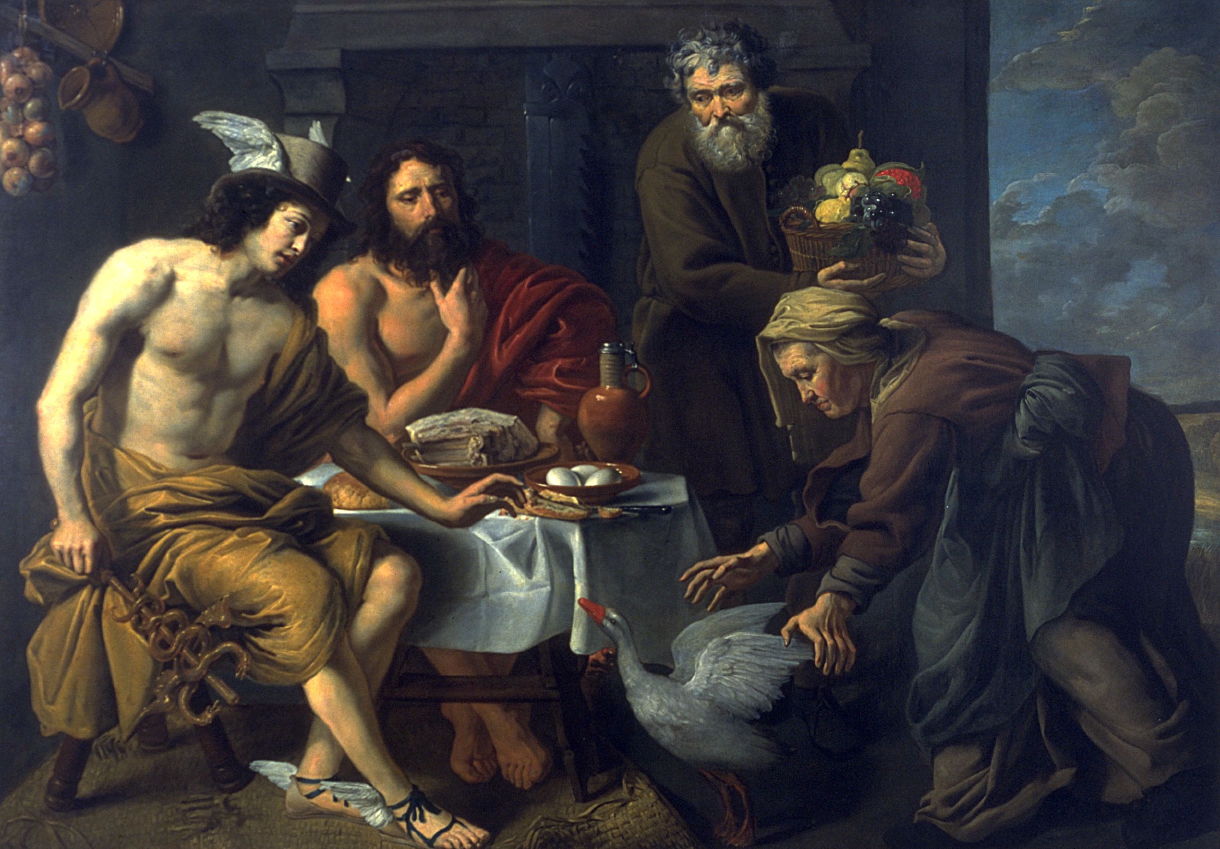Who is the sacred stranger, according to ancient laws of hospitality? The sacred guest we shelter and to which we must offer food, is our Self.
The Sacred Stranger in Greek Mythology
Strangers who travel to certain lands retaining old customs may participate in a mystery: The gods may enter our abode, unknown to us.
In Greek legend, Baucis and Philomen were an old couple whose poor dwelling was visited one evening by two tall visitors of regal bearing. The travelers did not give their names. They were seeking accomodation for the night. The couple gladly offered to share what they had, in the ancient tradition of hospitality. They set about immediately seeing to the needs of the strangers. They laid out their small store of bread and cheese, and killed their single rooster for the strangers’ dinner.
The visitors were gods. In the morning they blessed the pair, granting their simple wish to die and remain together, as in life. The blessing conferred eternal life. At death, Baucis and Philomen changed into two trees with branches intertwined over the gates of their home. Welcoming other travellers who might indeed be gods.

We travel, and we host others. Visitors have a special significance. When we are emotionally ripe, we can experience a traveler as a gift. Visitors bring a particular opportunity to see oneself in a new mirror, experiencing a new ‘being’ (even if we have known the visitor before). The role of traveler is still sacred and echoes back to the ancient world, where hospitality was a law in many lands. This unwritten law is still the rule among the steppes of Central Asia, among whose deserts Gurdjieff travelled. To withhold shelter could be a crime, a cause of death in remote regions.
Providing Shelter for Each Other
The shelter we offer each other still brings a possible shock, an opening of the emotional center. Who is this stranger whom I recognize as my guest? What gift can I offer, and what will change as a result of the encounter? And ‘strangers’ can be living in our house for years.
It has been interesting to observe, in the centers and teaching houses of the Fellowship, perhaps particularly in Russia, how tenderly, even ecstatically received visitors are. The mystery endures. One becomes new by receiving it into one’s house. Readiness is all.
Who is this Stranger in our House?
Each stranger is sacred. And each is cajoled for the songs he alone can sing. This hospitality, too, is practice: preparation for the stranger we remain to our lower centers. The sacred guest we eventually recognize, shelter and to whom we must offer food, is our Self.
The gods enter our abode. This may be why playing the role of visitor is so emotionally immediate, shocking one into the moment: one is playing the role of one’s Self.
See more articles from FourthWayToday.org here.
